The picture below was drawn about 5 years ago at a workshop on User Experience Research & Design at Cranfield University facilitated by Andy Priestner.
The task was to draw your working day and then use the drawing as a reflection aid. So, 5 years later, when we were asked to write a blog post about our working day, I thought I’d dig it out.
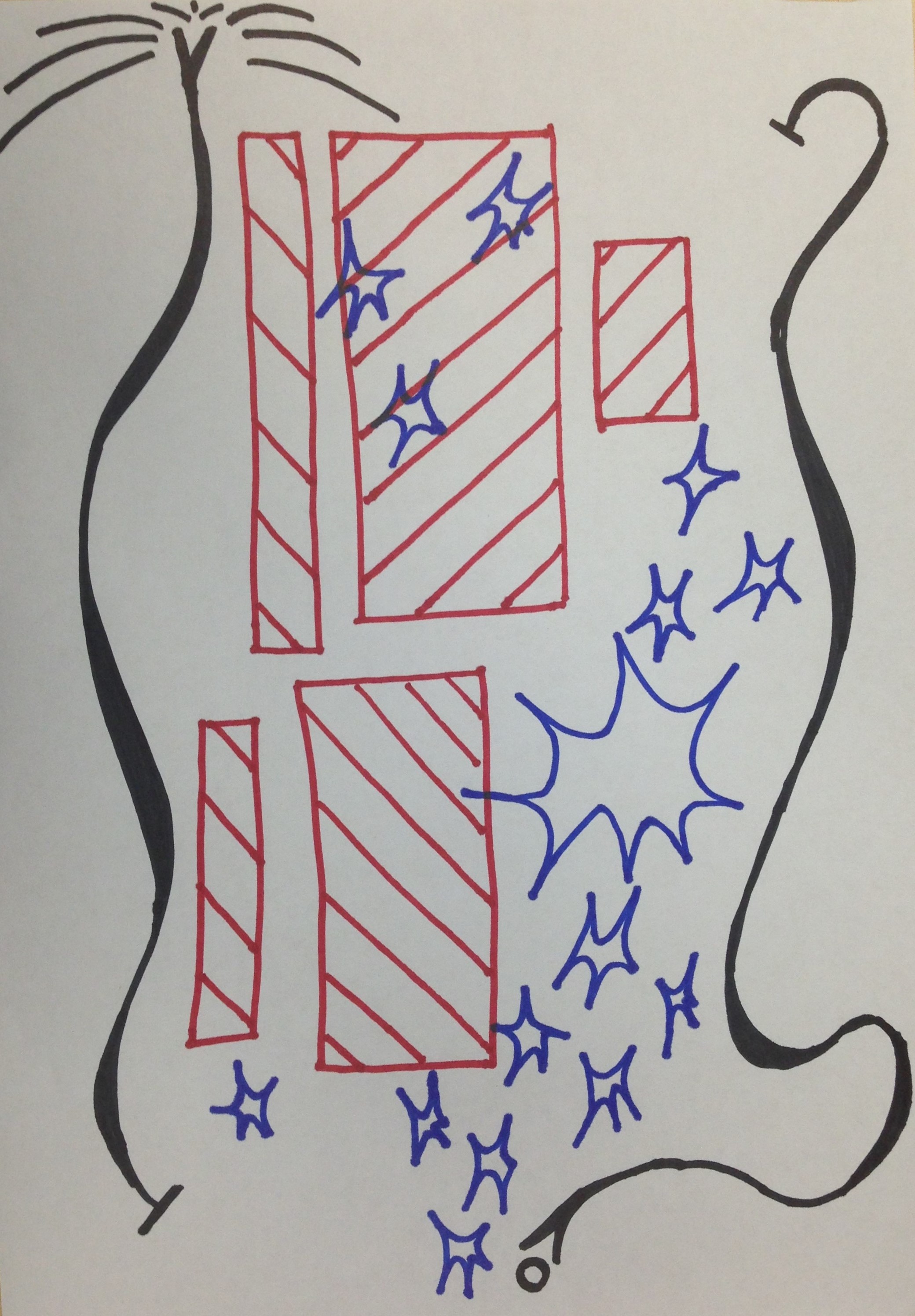
A Working Day – 5 years ago
What does it mean?
The red squares represent long involved pieces of work. They might include:
- Regular reports we generate on Open Access publishing at the OU
- Quality Assurance work on ORO
- Updating and monitoring workflows around ORO
- Discussions with peers from other universities regarding developments to scholarly communications e.g. ORCIDs, Plan-S
- Work based research e.g. how can ORO be more complete and current?
- Designing and delivering training around our offer
- New developments for ORO e.g. digital preservation and expanding the scope of what is included in ORO
The blue flashes are small bits of work like enquiries or requests for information that pop up and need pretty much immediate attention:
- Enquiries from research staff about ORO and Open Access
- Support to library staff using ORO
- Doing stuff my manager tells me to do 😊
The long black lines represent my commute, a 6-mile cycle from Newport Pagnell. The commute topped and tailed my working day – it provided a break between home and office life, a chance to reflect on the working day.
Reflecting on the picture
And that was a useful reflection. 5 years ago, it made me think about:
- Ring fencing time for some of those big tasks
- The importance of the commute
How has that changed?
Well mid-pandemic it’s quite hard to pin down, some days I’m working from home, others I’m in the office. Working from home and working in the office feel very different, so there have to be two pictures. Beside that there is some commonality with 5 years ago, but some big differences too.
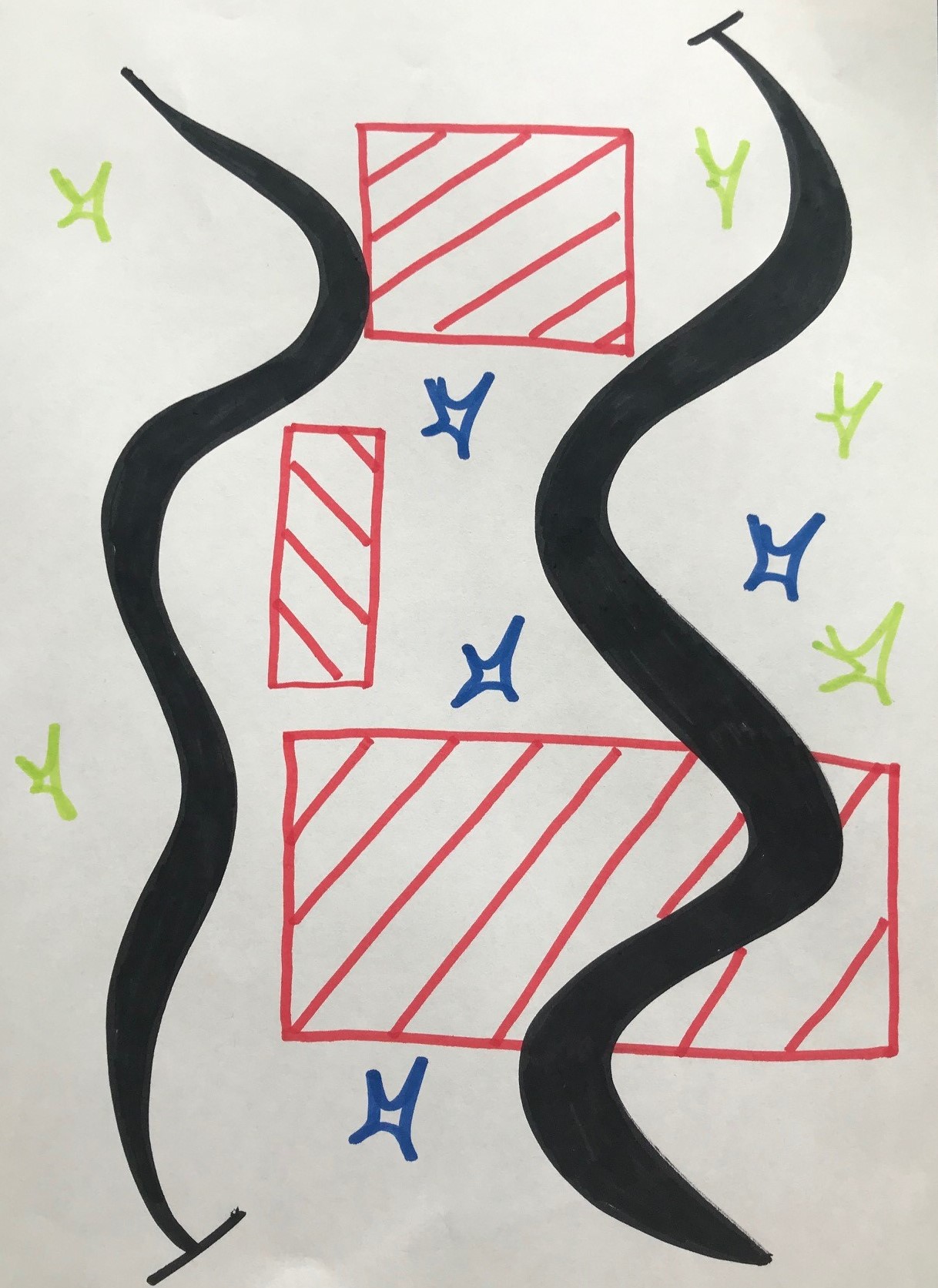
In the Office – Pandemic
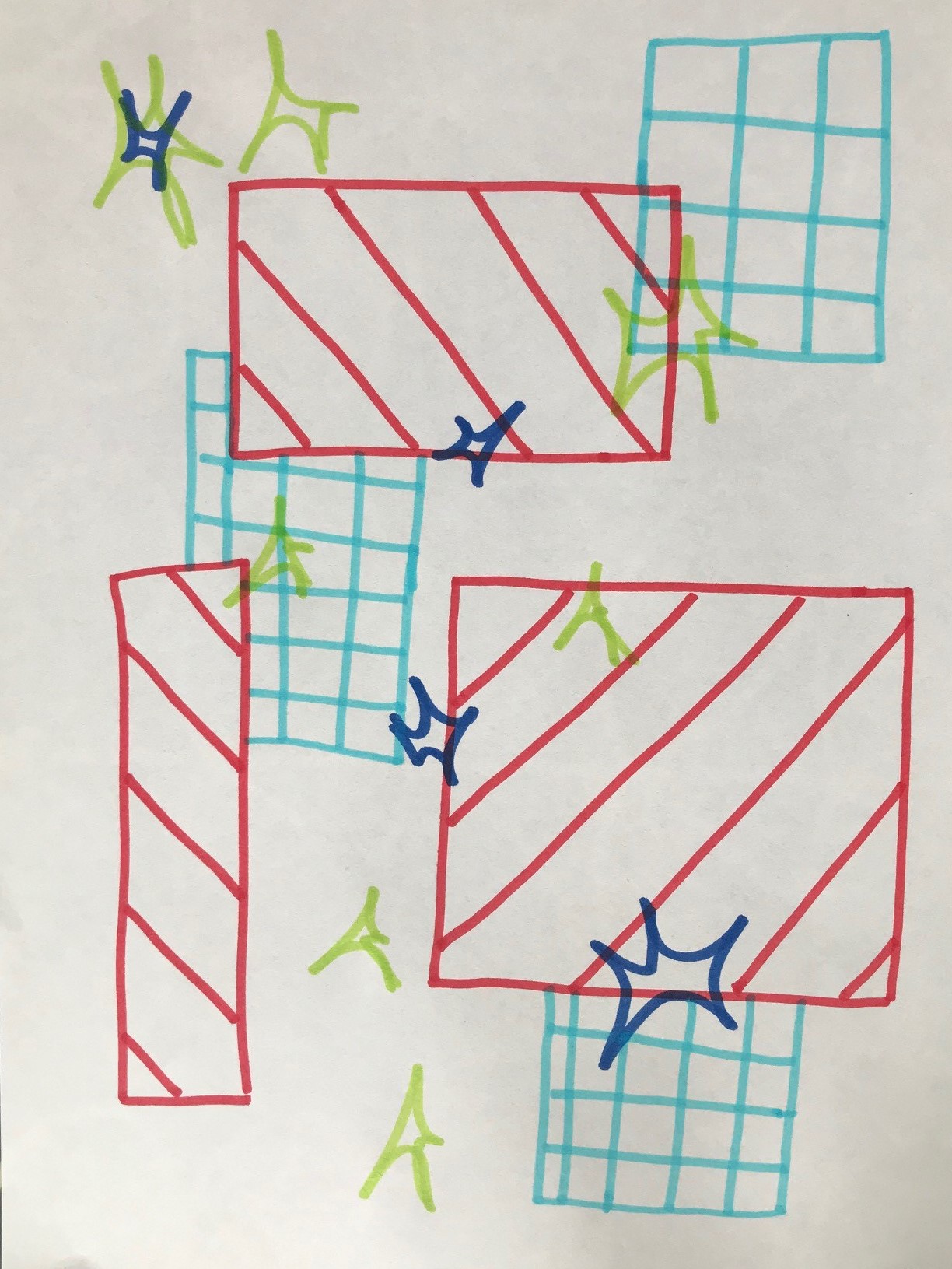
Working from Home – Pandemic
The red squares remain, but the substance of them is a bit different – there is less development stuff going on and more operational. I can live with that, but I hope it will change. The squares also spill out across the day – my working hours are interrupted by parenting – so there remain pieces of work that I need to pick up later in the evening when the house is quiet. So those red boxes spill outside of ‘usual’ office hours.
The blue flashes have decreased, my colleagues have picked up a lot of those, thank you guys. That’s helped me finish those big REF red boxes. But again, those flashes may occur in the office or at home.
But that’s where things further diverge:
Where there is a black line it serves as an (albeit imperfect) frame to the day and an important mental break from the mess of home/life working.
Blue squares appear when I’m working from home – these are underlying domestic things that I find really hard to dispel when I’m at home: washing, cooking, home schooling – all these things I know have to get done at some point during the day and distract my working day.
Blue flashes appear – they are those little domestic incidents involving small people that require immediate attention.😬
Reflecting on the new pictures
- The commute is a massive boon to my mental health
- The office allows me to focus on the work
- Life is just more complicated and messy for many of us
I don’t know how I can act on that final reflection, how can it be less complicated or messy at the moment? I don’t know. Maybe, as well as being OK not to be OK, it’s also OK to be messy and OK to be unsure.
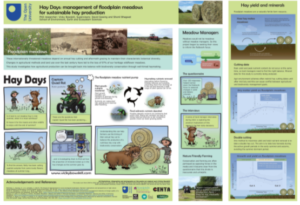
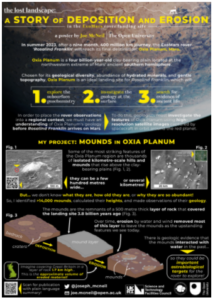


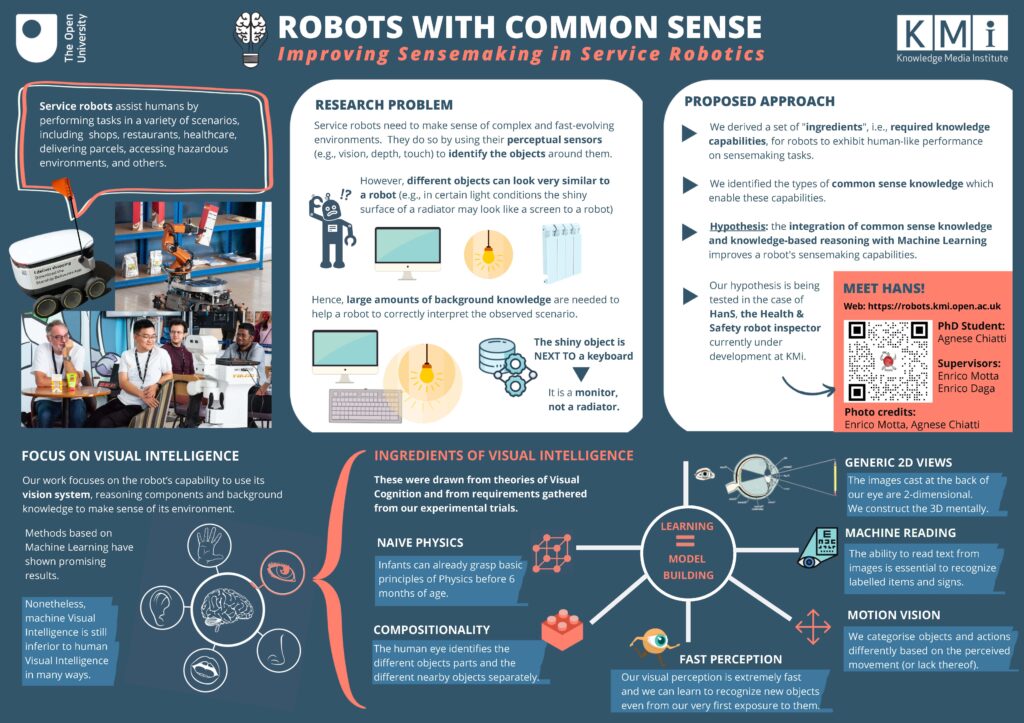







 When you’re working on a research project as a team a consistent approach to data management is very important to ensure that data is stored securely, documented accurately and everyone is able to easily find and access the documents they need.
When you’re working on a research project as a team a consistent approach to data management is very important to ensure that data is stored securely, documented accurately and everyone is able to easily find and access the documents they need.